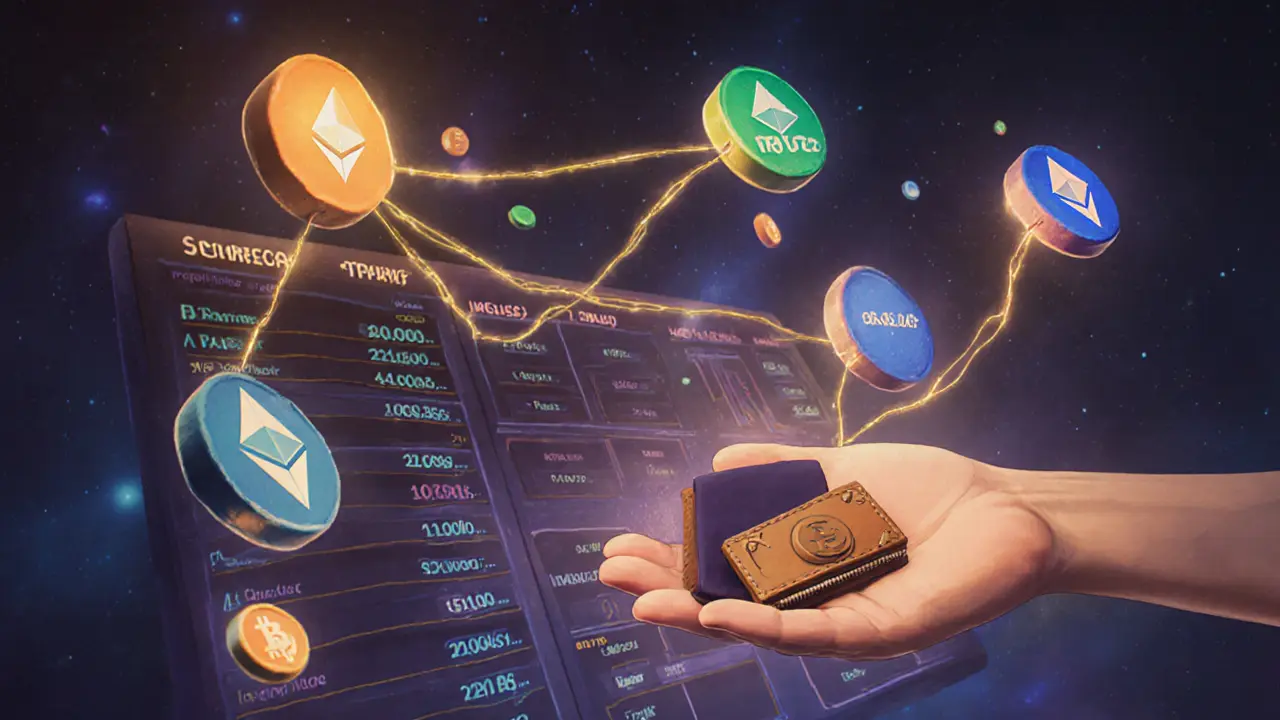Clober vs Uniswap: Which Decentralized Exchange Is Right for You?
When you trade crypto without a middleman, you’re using a decentralized exchange, a platform that lets you swap tokens directly from your wallet without needing to trust a company with your funds. This is the core of DeFi — and two names come up again and again: Uniswap and Clober. But they’re not the same. Uniswap is the giant — used by millions, backed by billions in liquidity, and running on Ethereum. Clober? It’s smaller, newer, and built for specific chains like Binance Smart Chain or Polygon. One is a highway. The other is a backroad with fewer cars but maybe less traffic.
What does that mean for you? If you’re swapping ETH for USDC or trading major tokens like LINK or AAVE, Uniswap is the default choice. It’s reliable, audited, and has deep pools so your trade doesn’t swing wildly in price. But if you’re trading niche tokens on BSC or Polygon — tokens that aren’t even listed on Uniswap — Clober might be your only option. It’s faster, cheaper, and often has better rates for those obscure coins. But here’s the catch: Clober doesn’t have the same track record. No big audits. Less community oversight. And if a liquidity pool dries up? You’re stuck. Uniswap has survived bear markets. Clober hasn’t even seen one yet.
Then there’s the user experience. Uniswap’s interface is clean but can feel clunky if you’re new. Gas fees on Ethereum can spike during hype cycles — sometimes more than the trade itself. Clober cuts that cost. Its transactions settle faster, and fees stay low even when the market is busy. But you’re trading speed and cost for safety. Uniswap’s code is open, tested, and copied by dozens of other DEXs. Clober’s code? Less visible. Less reviewed. And if you’re holding a token that only trades on Clober, you’re locked in — no easy exit to a bigger platform.
So who wins? It depends on what you’re doing. If you’re holding Bitcoin, Ethereum, or top 20 coins and want to trade them safely, stick with Uniswap. It’s the standard for a reason. But if you’re deep into altcoins on cheaper chains, hunting for early projects, or tired of paying $20 in gas to swap a $5 token — give Clober a shot. Just don’t put your life savings into a pool that no one else is watching. Always check liquidity. Always look for audits. And never assume a DEX is safe just because it lets you trade.
The posts below dive into exactly this kind of trade-off — from platforms like STON.fi and StellaSwap that focus on niche blockchains, to risky tokens like Sphynx Labs and Kalata Protocol that live on the edge of DeFi. You’ll find reviews of exchanges that promise low fees but hide hidden dangers, and guides on how to spot which DEXs are actually worth your time — and which ones could cost you everything.
Clober Crypto Exchange Review: The Only Fully On-Chain Order Book DEX That Actually Works
Clober is the only fully on-chain order book DEX that offers zero slippage and no impermanent loss. See how it compares to Uniswap, gas costs, pros, cons, and whether it's worth using in 2025.
